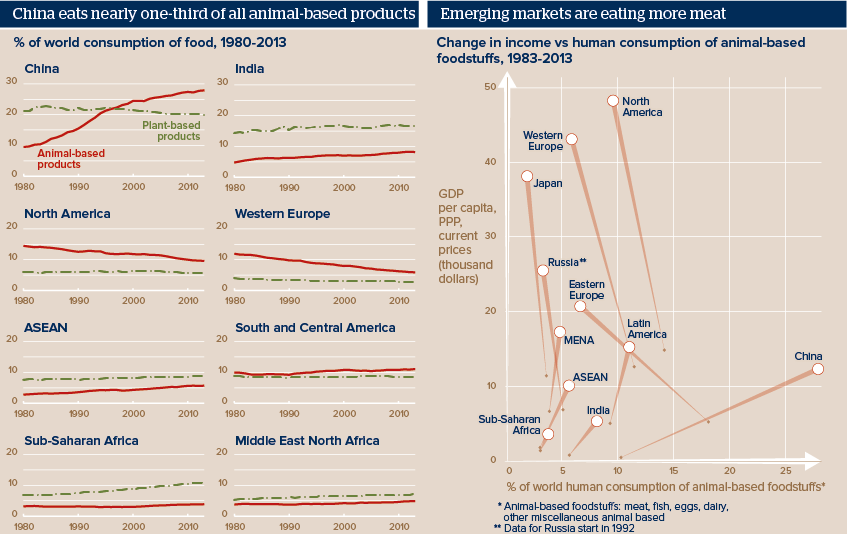Changing diets challenge sustainable global growth
Emerging markets are eating more animal based products; the shift has vast implications for trade and the environment
Source: Food and Agriculture Organization of the United Nations; IMF World Economic Outlook
Outlook
Advanced countries are eating less animal-based products but still more than essential. Developing countries will increase their meat and dairy consumption towards recommended protein intakes.
Environmental pressures will rise -- beef production uses 8.4 times more water per tonne than wheat, 28 times more land and creates 35 times more greenhouse gas emissions.
Other challenges include obesity, famine and safety. More than 2 billion people are overweight, nearly two-thirds of them in developing or emerging markets. There are 3.4 million related deaths each year. However, in Nigeria, Somalia, South Sudan and Yemen, 38 million people face food insecurity. Another challenge is food safety, costing the United States 15 billion dollars a year.
Impacts
- Availability of plant-based ‘meat’ such as Impossible Burgers will rise but will be more expensive than environmentally unfriendly meat.
- Eating less animal-based products raises advanced countries' health outcomes but eating more of them improves developing countries’ health.
- Rural China is an estimated 30 years behind urban areas in eating animal products -- rural Asian and African meat consumption could surge.
- Innovations including vertical farming, gene sequencing, yield enhancements, and climate-resistant crop strains are proliferating.
See also
- Alt-meat demand surging will reshape protein choices - Jul 9, 2019
- Costly food will spotlight neglect of Turkish farming - Aug 6, 2018
- Wealth creates new food-security challenges for China - May 8, 2018
- Power could shift to national level in EU agriculture - Mar 28, 2018
- Walmart drone patents will alter food supply chains - Mar 15, 2018
- Population trends pose development challenges - Jul 27, 2017
- More graphic analysis
